 W
WWilliam de Forz, 3rd Earl of Albemarle was an English nobleman. He is described by William Stubbs as "a feudal adventurer of the worst type".
 W
WAlbert IV was Count of Habsburg in the Aargau and a progenitor of the royal House of Habsburg.
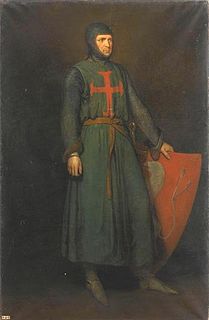 W
WAmaury de Montfort, Lord of Montfort-l'Amaury, was the son of Simon de Montfort, 5th Earl of Leicester and Alix de Montmorency, and the older brother of Simon de Montfort, 6th Earl of Leicester. Amaury inherited his father's French properties while his brother Simon inherited the English title of Earl of Leicester.
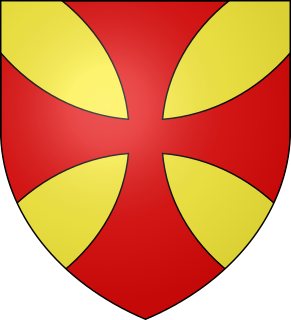 W
WBalian III of Beirut was the Lord of Beirut, the second of his family, from 1236, and a son of the famous "Old Lord" John of Ibelin, by his second wife Melisende of Arsuf. From his father he assumed the leadership of the nobility in the War of the Lombards, fought against the agents of the Emperor Frederick II.
 W
WGuigues IV or Guy IV was the count of Forez, Auxerre and Tonnerre from 1203 and the count of Nevers from 1226. He was still a child when his father, Guigues III, died on the Fourth Crusade and he inherited Forez. His mother was Alix and his uncle, Renaud, archbishop of Lyon, acted as regent until he came of age in 1218.
 W
WHugh IV of Burgundy was Duke of Burgundy between 1218 and 1272 and from 1266 until his death was titular King of Thessalonica. Hugh was the son of Odo III, Duke of Burgundy and Alice de Vergy.
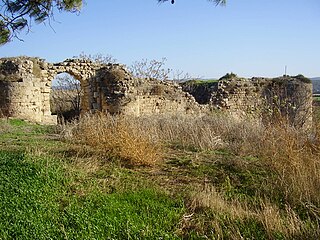 W
WJohn was the Lord of Caesarea from 1229 and an important figure in the kingdoms of Cyprus and Jerusalem. He was the only son of Walter III of Caesarea and Marguerite d'Ibelin, daughter of Balian of Ibelin. He was often called "the young lord of Caesarea" throughout his life to distinguish him from his father, who had been called "the old lord of Caesarea".
 W
WSimon de Montfort, 6th Earl of Leicester, later sometimes referred to as Simon V de Montfort to distinguish him from his namesake relatives, was a nobleman of French origin and a member of the English peerage, who led the baronial opposition to the rule of King Henry III of England, culminating in the Second Barons' War. Following his initial victories over royal forces, he became de facto ruler of the country, and played a major role in the constitutional development of England.
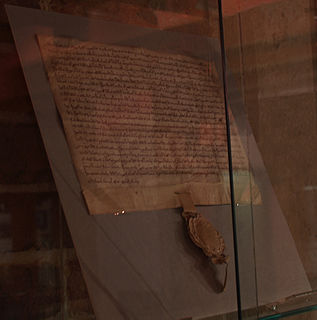 W
WSir William Longespée was an English knight and crusader, the son of William Longespée and Ela, Countess of Salisbury. His death became of significant importance to the English psyche, having died at the Battle of Mansurah, near Al-Mansurah in Egypt.
 W
WRobert Marmion was an Anglo-Norman nobleman and rebel involved in the First Barons' War. He was referred to as "Robert Marmion the Younger" as his elder half-brother was also called Robert and known as "Robert Marmion the Elder".
 W
WPhilip Ι of Montfort, was Lord of La Ferté-Alais and Castres-en-Albigeois 1228–1270, Lord of Tyre 1246–1270, and Lord of Toron aft. 1240–1270. He was the son of Guy of Montfort and Helvis of Ibelin.
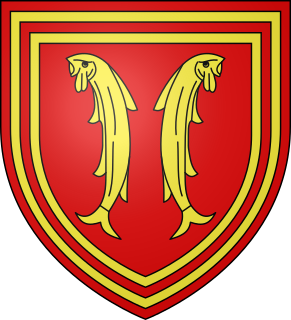 W
WOdo of Montbéliard was a leading baron of the crusader Kingdom of Jerusalem in the early 13th century. He often held the highest offices in the kingdom including bailli (viceroy) and constable.
 W
WPeter I, also known as Peter Mauclerc, was Duke of Brittany jure uxoris from 1213 to 1221, and regent of the duchy for his minor son John I from 1221 to 1237. As duke he was also 1st Earl of Richmond from 1218 to 1235.
 W
WBaldwin de Redvers, 6th Earl of Devon, feudal baron of Plympton in Devon and Lord of the Isle of Wight, was the son of Baldwin de Redvers and Margaret FitzGerold and grandson of William de Redvers, 5th Earl of Devon.
 W
WRichard, second son of John, King of England, was the nominal Count of Poitou (1225–1243), Earl of Cornwall and King of the Romans. He was one of the wealthiest men in Europe and joined the Barons' Crusade, where he achieved success as a negotiator for the release of prisoners and assisted with the building of the citadel in Ascalon.
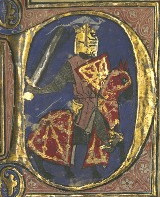 W
WTheobald I, also called the Troubadour and the Posthumous, was Count of Champagne from birth and King of Navarre from 1234. He initiated the Barons' Crusade, was famous as a trouvère, and was the first Frenchman to rule Navarre.
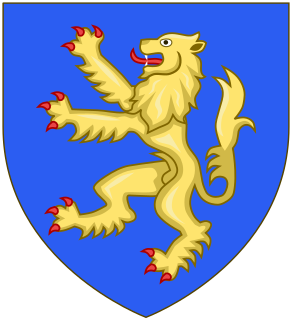 W
WWalter IV (French: Gauthier was the count of Brienne from 1205 to 1246.